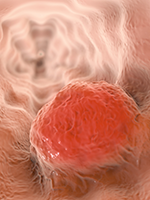Chicago, IL—Tumor-specific antigens provide personalized targets for immunotherapy. Neoantigen vaccines are a new type of immunotherapy that can elicit immune response and achieve remission. Evidence is compelling to support neoantigens as the target of effective immune responses against cancer and to support an association between neoantigen load with improved clinical outcome, said Patrick Alexander Ott, MD, PhD, Clinical Director, Center for Immuno-Oncology, Dana-Farber Cancer Institute, Boston, MA, at ASCO 2019.
“Neoantigen-specific T-cells are expanded in settings of effective antitumor immunity, and there is now direct evidence of cytotoxicity of neoantigen-specific T-cells,” said Dr Ott. “In the context of vaccine design, this has led to a paradigm shift away from native antigens toward neoantigens.”
The process of developing a neoantigen vaccine starts with sequencing each patient’s tumor cells and normal cells. Mutations are identified and epitopes are selected, usually by epitope prediction algorithms as well as RNA expression and other variables. The format of the vaccine can include a DNA vaccine, RNA vaccine, peptide vaccine, or viral-based vaccine. The vaccine is then administered to the patient.
Responses in High-Risk Melanoma
Dr Ott discussed a study with personalized neoantigen vaccine that was tested at Dana-Farber Cancer Institute in 6 high-risk patients with melanoma and was discussed in Nature.1 The vaccine produced robust interferon-gamma responses against multiple personal neoantigens, demonstrating that multiple vaccine-specific responses were generated.
Across the 6 patients, 18% of the vaccine epitopes had generated CD4 responses ex vivo. After in vitro stimulation, 60% of the vaccine epitopes induced CD4 responses and 16% induced CD8 responses.
The proportion of CD4 versus CD8 responses closely mimicked the proportion observed in another study that used an RNA-based vaccine that was injected into the lymph nodes of patients with melanoma, Dr Ott said.
“Our vaccine-induced T-cell responses in the melanoma patients were specific for their mutant versus their wild-type peptide, both for CD4 and CD8,” he said. In 3 of the 6 patients in the study, the vaccine-specific T-cell responses were specific for autologous tumor.
The functionality of the T-cells was evident by single-cell RNA sequencing that showed major shifts in gene expression between prevaccination CD4 cells and vaccine-specific postvaccination CD4 T-cells, which demonstrated a transition from naïve cells toward an effector memory phenotype.
An identical vaccine approach was tested in a cohort of patients with glioblastoma multiforme, which favorably altered the immune milieu, as was evidenced by an increase in the number of tumor-infiltrating lymphocytes and the generation of circulating polyfunctional neoantigen-specific CD4 and CD8 T-cell responses that were enriched in a memory phenotype.
Neoantigen Vaccine and PD-1 Inhibition
In the melanoma study, the 2 patients with melanoma who had disease recurrence while receiving the vaccine also received pembrolizumab (Keytruda) for PD-1 inhibition, which led to complete response after 4 treatments. “Interestingly, the repertoire of the T-cells in both of these patients was found to persist and broaden over time, where you can see de novo responses that occurred after the PD-1 inhibition that had not been seen after the vaccine,” Dr Ott said.
Combining a neoantigen vaccine with PD-1 inhibition is a logical next step, Dr Ott said, and the most mature data from this approach come from a study of patients with non–small-cell lung cancer (smoking-related), bladder cancer, and melanoma. Peptide analysis showed T-cell responses against nonvaccine, tumor-specific neoantigens in most patients.
In the melanoma cohort, 12 of the 16 patients who completed all vaccinations had objective responses, 8 of which occurred after the administration of nivolumab (Opdivo) and 4 after receiving a vaccine, “giving some signal of clinical activity of the vaccine,” said Dr Ott.
T-Cell Responses to 91% of Neoantigens
New data from a phase 1/2 clinical trial for 9 patients that were presented at ASCO 2019 showed that a neoantigen vaccine based on autologous peptide immune responses (GEN-009) elicited T-cell responses to 91% of the vaccine neoantigens in 5 patients for whom immune response results were available. In addition, 47% of the neoantigens were able to elicit ex vivo CD8 T-cell responses, reported Roger B. Cohen, MD, Associate Director for Clinical Research, Abramson Cancer Center, University of Pennsylvania, Philadelphia.
Inclusive of the results observed after in vitro stimulation, the CD8 T-cell response rate was 53%. The generation of the neoantigen peptide vaccine was consistently feasible in less than 16 weeks. All vaccinations were well-tolerated; there was only 1 grade 1 injection-site reaction, and 1 patient had grade 1 pyrexia. All 17 vaccinations were administered without dose-limiting toxicity.
“GEN-009 can generate broad CD4+ and CD8+ effector and memory T-cell responses across multiple neoantigens, unprecedented in single-agent neoantigen vaccination,” Dr Cohen and colleagues concluded in their poster presentation.
GEN-009 is being advanced into part B of the clinical trial, which will test the safety, immunogenicity, and antitumor activity of GEN-009 in combination with pembrolizumab or with nivolumab in patients with advanced and metastatic solid-tumor cancers. s
Reference
- Ott PA, Hu Z, Keskin DB, et al. An immunogenic personal neoantigen vaccine for patients with melanoma. Nature. 2017;547:217-221. Erratum in: Nature. 2018;555:402.


